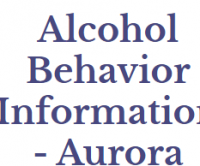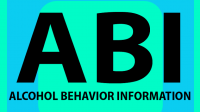Landmark Recovery of Denver
Drug Rehab Center in Aurora, Colorado
Landmark Recovery of Denver in Aurora, Colorado, is a highly reputable addiction treatment facility offering a range of evidence-based programs, including detox, outpatient, inpatient, and dual-diagnosis care, with a focus on individualized treatment and long-term sobriety, while accepting private health insurance.
About Landmark Recovery of Denver in Colorado
Landmark Recovery of Denver, located in Aurora, Colorado, is a drug and alcohol treatment center that supports adults struggling with substance use disorders. The facility offers a range of addiction-related services, including mental health assessments, counseling, detox, residential treatment, and outpatient programs.
- Comprehensive assessments evaluate mental health status and create individualized treatment plans tailored to each client's unique needs.
- Inpatient medical detox provides a safe and comfortable environment for individuals to withdraw from drugs and alcohol under medical supervision.
- Residential treatment offers a minimum 30-day stay, focusing on individual and group counseling, educational groups, and recovery meetings.
Landmark Recovery of Denver has been accredited by JCAHO and LegitScript, confirming their commitment to delivering the highest quality of care possible. They specialize in treating substance abuse, opioid addiction, mental health issues, and alcoholism.
The facility offers various levels of care, including medically supervised detox, partial-hospitalization, outpatient, inpatient, intensive outpatient, and dual-diagnosis programs. They also provide aftercare support to ensure long-term sobriety.
Genders
Ages
Modality
Additional
Accreditations

LegitScript

JCAHO
Conditions and Issues Treated
Substance Abuse Treatment is important when getting sober, as it helps addicts learn the skills they need to live a clean life. There are many different kinds of recovery treatment, including but not limited to medication-assisted therapy, behavioral therapeutic approaches, self-help groups, and counseling. Each treatment has its benefits that help addicts recover.
Counseling can help addicts learn the skills they need to live sober lives. It can be used to treat underlying mental health issues, like depression or anxiety, that could lead to relapse. Counseling can also help people find work, deal with family problems, and learn to manage living without drugs.
Levels of Care Offered
This center offers a variety of custom treatment tailored to individual recovery. Currently available are Aftercare Support, Detox, Inpatient, Intensive Outpatient, Outpatient, Partial-Hospitalization, with additional therapies available as listed below.
Detox is an integral part of recovery and often very hard. Detoxification is the process of letting the body remove the drugs in it. It addresses the physical aspect of addiction. Detox from drugs can be unsafe as the patient undergoes withdrawal symptoms that range from headaches, vomiting, body aches to seizures and cardiac arrests. The main purpose of detox is to keep the drug users comfortable as the drugs leave their system.
Quitting cold turkey is not recommended and can lead to many issues. Detox is best done under medical supervision so that a team of experts can monitor the side effects and complications. Detox, alone, does not guarantee sobriety as the underlying psychological issues are not addressed.
Inpatient treatment is a form of recovery used in drug rehab. Inpatient recovery offers individual therapy, groups, and family therapy to ensure that the addict has the best recovery possible. A variety of treatments are provided in this type of recovery, depending on what treatment the addict needs at that particular time.
The length of inpatient addiction treatment depends on the addict and their addiction. Inpatient rehabilitation can last anywhere from 30 days to 90 days, depending on how severe the drug abuse is. Inpatient rehab is a costly drug treatment, costing anywhere from $30k- to $60k. However, insurance often offers help in covering these costs.
An intensive outpatient program (IOP) is effective for drug rehab, but it can take six months to several years to complete. It’s the most popular type of drug rehab program in the United States. One example of a successful IOP success story is actor and comedian Chris Rock, sober since 1990.
An IOP allows participants to spend nights at home while attending meetings throughout the day. It’s a good way for drug addicts to make a recovery plan in an outpatient setting while still supporting their loved ones.
Alcohol or drug addiction, or co-occurring disorders, are treated in an outpatient program. The patient must attend therapy and other programs at the facility but can return home each night.
Outpatient treatment allows recovering addicts to live at home while receiving addiction treatment. Outpatients can attend group sessions for a few hours per week. Outpatients may also continue to work full time and study/attend school without interruption if they choose.
A popular way of getting drug treatment is through a Partial Hospitalization Program. These programs are short and intensive, allowing for more freedom in family visits. Patients can check in with the program anywhere from 18 to 30 hours per week but only sleep at home at night. The program may last anywhere from one to six months.
The accomplishment of completing a drug or alcohol treatment program is just the first step. Once that is complete, aftercare support comes into play. This includes helping people adjust to life without substances outside of guidelines with assistance like getting sober living accommodations and career counseling and AA/NA programs for those who are struggling between sobriety or want continued help in maintaining it once they have completed their initial rehabilitation at an addiction facility.
Aftercare comprises services that help recovering addicts readjust to normal day-to-day activities while working on specific issues. These problems include psychiatric issues, family problems caused by substance abuse, continuing education pursuits if desired during rehab, etc. These can last up to one year+ depending on what’s needed most urgently upon completion of earlier stages.
Therapies & Programs
Different people react differently to various treatment options. Some drug rehabilitation centers offer individualized treatment that caters to the specific needs of a drug addict. The best treatment option varies on an individual depending on the type of drug abused, life history, medical condition of the person, social circumstances, and the environment they live in now.
When a person enters drug rehab, they usually have anti-drug associations such as withdrawal symptoms, stress, cravings, etc. The first step of drug rehab is to detoxify the body from any residual substances in it. Drug rehabilitation centers usually employ trained medical professionals to help in this process. Usually, the initial detoxification lasts for five days, where the person is monitored under close supervision.
Attending group therapy at Landmark Recovery of Denver in , is a useful way for those seeking sobriety to realize they aren’t the only one going through it.
This is when a group of people on different recovery phases get together and talk about what they’re going through, their triggers, successes, and failures. This can include alternative types of therapies too! Group therapy may occur on an outpatient or inpatient basis with groups that have no pre-existing relationships outside the session, unlike support groups where everyone already knows each other beforehand.
Payment Options Accepted
For specific insurance or payment methods please contact us.
Is your insurance accepted?
Ask an expert, call (888) 674-0062
Additional Details
Specifics, location, and helpful extra information.
Aurora, Colorado 80012 Phone Number(702) 702-9994 Meta DetailsUpdated April 15, 2024
Staff Verified
Is Landmark Recovery of Denver a LegitScript Verified Treatment Facility?
According to our most recent records, we have found this center to be LegitScript verified.
Landmark Recovery of Denver Patient Reviews
There are no reviews yet. Be the first one to write one.
Aurora, Colorado Addiction Information
The Centennial State has slipped to a ranking of 12th in the country for drug abuse. Each year around 24% of the state's population uses illegal drugs while nearly 5% of its population abuses alcohol. Substance-related deaths in Colorado were responsible for 15.12% between 2008 and 2017. Fortunately, Colorado drug and alcohol addiction treatment are available to help a person overcome addiction.
The drug addiction problem in Aurora, CO is severe. The number of opioid-related deaths in the area quadrupled from 2013 to 2017. It's estimated that there are over 2,000 drug overdoses in Aurora each year. Many addiction treatment centers will offer a variety of therapies and treatments, such as group therapy, individual therapy, family therapy, medication-assisted treatment, and holistic therapies.
Treatment in Nearby Cities
- Yuma, CO (115.5 mi.)
- Fairplay, CO (70.3 mi.)
- Arvada, CO (16.3 mi.)
- Cascade, CO (54.8 mi.)
- Idaho Springs, CO (36.9 mi.)
Centers near Landmark Recovery of Denver
The facility name, logo and brand are the property and registered trademarks of Landmark Recovery of Denver, and are being used for identification and informational purposes only. Use of these names, logos and brands shall not imply endorsement. RehabNow.org is not affiliated with or sponsored by Landmark Recovery of Denver.







